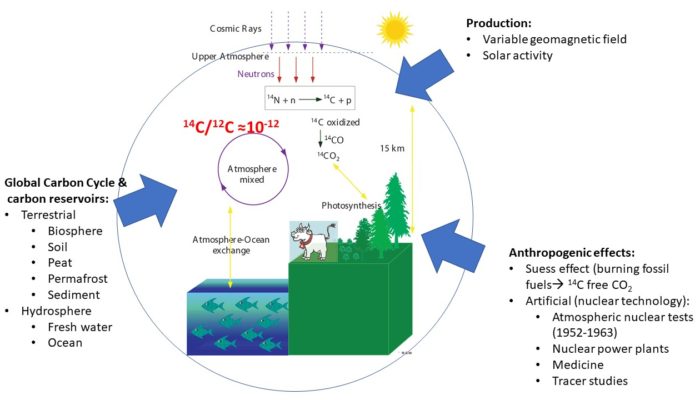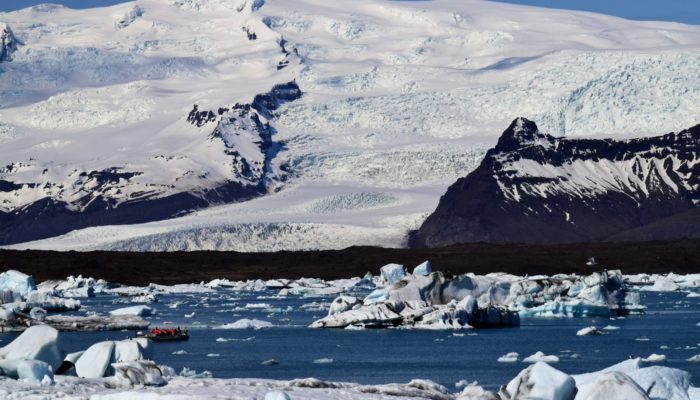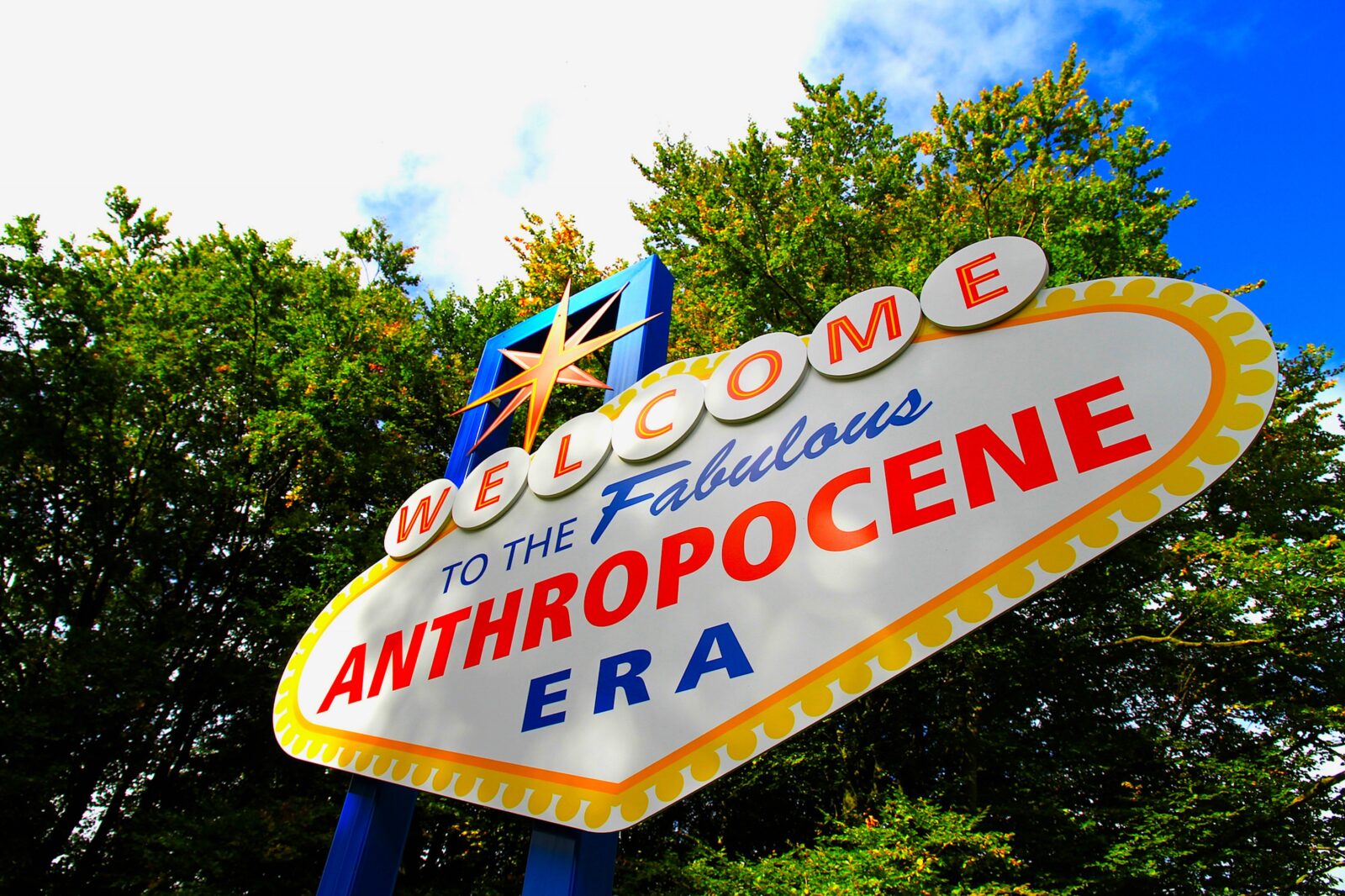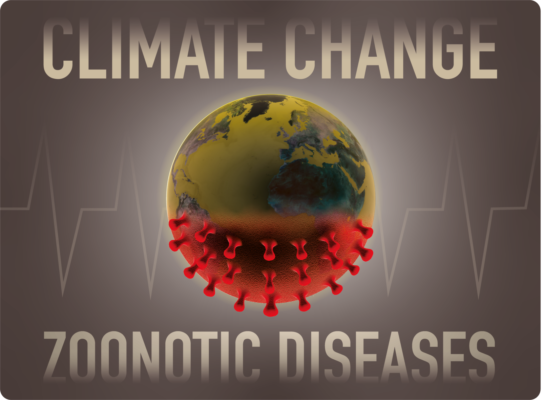– A debate among scientists and its impact on us The epoch of humans (and their obvious intervention in the Earth system) In order to understand what the ‘Anthropocene’ means for us, we need to define first what it actually is. This poses a rather complex question in itself, as various disciplines have given the term rather different and alternative definitions. For instance, the public medi ...[Read More]
Bomb 14C – a tracer and time marker of the mid-20th century

1950 CE is known as the year zero in the so-called ‘BP time scale.’ The BP stands for, “Before Present,” and has its roots in the development and conventions of radiocarbon dating [1]. The radioactive isotope of carbon (14C) with a half-life of 5700 years [2; 3] is a cosmogenic isotope produced in the atmosphere by secondary cosmic rays (SCR). Thermal neutrons, the SCR particle responsible for the ...[Read More]
How humans are influencing climate change and its significance in defining a new geological epoch: the Anthropocene

The Anthropocene Working Group (AWG) is the body tasked to propose a formal definition for the Anthropocene as a geological time unit. Join us at the EGU2021 General Assembly on Wednesday 28th April at 14:15-15:00 CEST for a series of presentations on the Anthropocene in session SSP2.6. The Anthropocene concept Geologists cope with the enormity of 4.5 billion years of Earth history by divid ...[Read More]
Are the risks of zoonotic diseases rising in the Anthropocene due to climate change?
The recent coronavirus outbreak (i.e., nCovID-19; Fig. 1) has caused global panic, along with widespread travel bans, home quarantines and country-wide lockdowns. The World Health Organization (WHO) declared nCoVID-19 as a pandemic as of March 11th, 2020 (WHO, 2020). To tackle this global health crisis, scientists are attempting to synthesize a vaccine, while countries are trying to mitigate the n ...[Read More]


